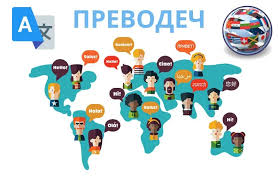Have you ever stumbled upon the word “преводеч” (pronounced roughly as “preh-voh-dyech”) while browsing online content written in Cyrillic script? It might seem like an indecipherable code if you’re unfamiliar with this alphabet. But fear not! This article will shed light on the meaning of “преводеч” and explore the fascinating world of translation.
Cyrillic Crash Course: Understanding the Alphabet
The word “преводеч” is written in Cyrillic, the alphabet used in many Slavic languages, including Russian, Bulgarian, and Ukrainian. Here’s a quick breakdown of the letters involved:
- п (p) – Pronounced as “p” in “pen”
- р (r) – Pronounced as a rolled “r” similar to the Spanish “r”
- е (e) – Pronounced as “ye” similar to “ye” in “yes”
- в (v) – Pronounced as “v” in “vine”
- о (o) – Pronounced as “o” in “coat”
- д (d) – Pronounced as “d” in “day”
- е (e) – Pronounced as “ye” similar to “ye” in “yes”
- ч (ch) – Pronounced as “ch” in “church”
By understanding these Cyrillic letters, you can now sound out the word “преводеч” more accurately.
Decoding “преводеч”: The Meaning Revealed
Now that we’ve tackled the alphabet, let’s unveil the meaning of “преводеч.” In English, “преводеч” translates to “translator.”
Here’s a more detailed breakdown of the word:
- корень (Koren) – meaning “root”
- -вод (void) – a suffix indicating someone who performs an action
Therefore, “преводеч” literally translates to someone who acts “prevesti” (перевести), which means “to translate” in English.
The Crucial Role of Translation
Translation plays a vital role in our interconnected world. It allows us to:
- Communicate Across Languages: Translators bridge the gap between languages, enabling people from different cultures to understand each other.
- Access Information: Translations make information and knowledge accessible to a wider audience, regardless of their native language.
- Promote Cultural Exchange: By translating literature, movies, and other cultural products, translators foster understanding and appreciation between different cultures.
Translators are essential for effective communication and knowledge sharing in today’s globalized world.
Different Types of Translation
The world of translation is vast, with different specializations to cater to various needs. Here are some common types of translation:
- Literary Translation: The translation of creative works like novels, poems, and plays, requires an understanding of the cultural context and literary nuances.
- Technical Translation: Technical documents, manuals, and scientific papers, demanding accuracy and precision in conveying specialized information.
- Website Localization: Adapting websites and digital content for a specific language and culture, ensuring cultural relevance and user-friendliness.
- Interpretation: The real-time spoken translation of conversations or speeches, requiring excellent listening and communication skills.
These are just a few examples, and the field of translation continues to evolve with new technologies and communication needs.
Becoming a Translator: The Path to Bridging Languages
If the world of translation piques your interest, here are some steps you can consider:
- Master a Language: Fluency in source and target languages is essential.
- Develop Translation Skills: Several online and in-person courses can equip you with translation techniques and best practices.
- Gain Experience: Volunteer opportunities or freelance work can help you build your portfolio and hone your skills.
- Consider Specialization: As you gain experience, you might specialize in a specific type of translation.
Becoming a translator requires dedication, language expertise, and a passion for bridging communication gaps.
Read More: Kääntäjäö: Navigating Insights into Translation and Beyond How to
Conclusion
The word “преводеч” (translator) serves as a reminder of the vital role translators play in our world. Translators connect people, promote knowledge sharing, and foster cross-cultural understanding by understanding different languages and cultures. So, the next time you encounter “преводеч,” remember the power of translation in our interconnected world.




